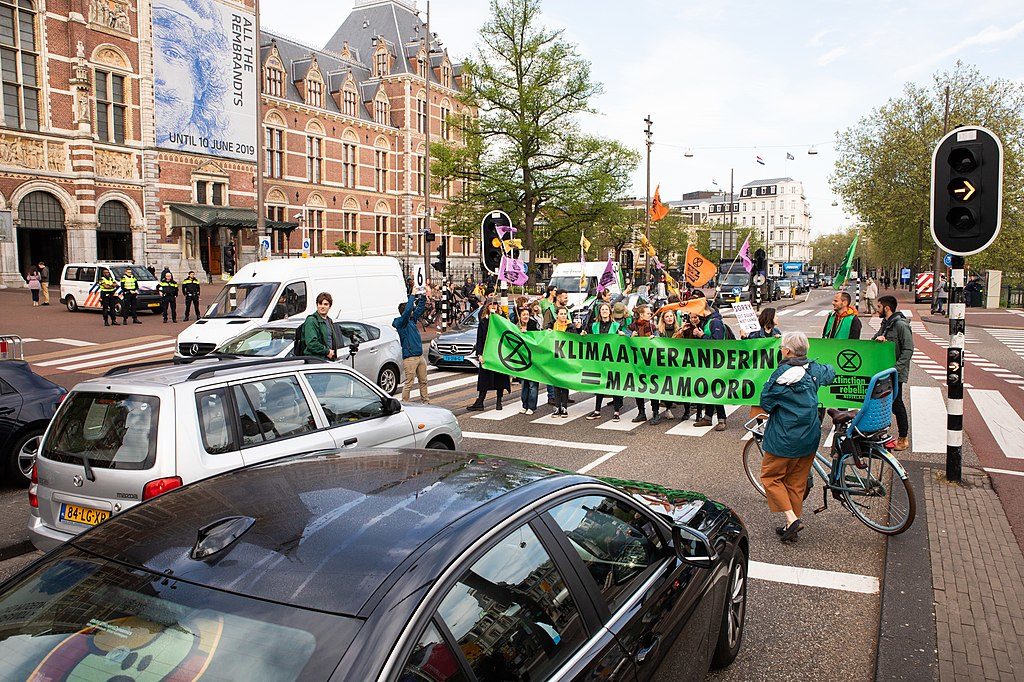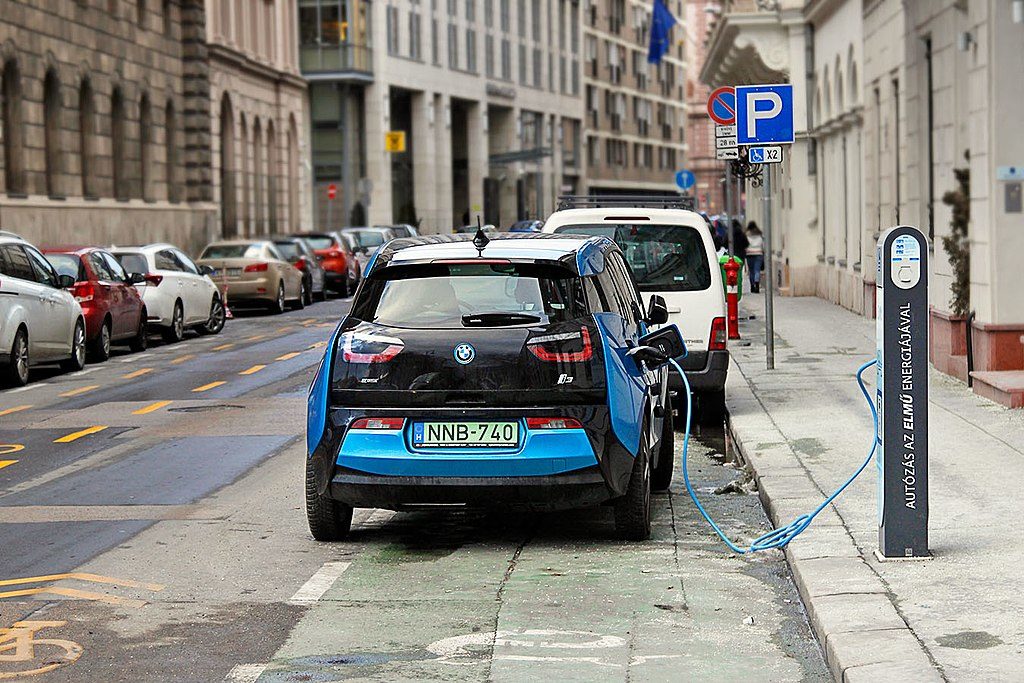
By MIRIAM ACZEL
The Dutch capital Amsterdam is widely known for being a bicyclist’s paradise.
Biking safety levels are the highest in the world—in stark contrast to the United States, where the likelihood of being injured while biking is over 20 times greater than in Amsterdam. Over half of Amsterdam’s commuting population turns to biking as their preferred mode of transportation.
Air Quality: Rising Threat to Health
However, despite the prevalence of bikes as a mode of transportation by many Dutch, air quality in the Netherlandsis worse than the European Union’s permitted levels, largely because of slow and heavy traffic in the built up cities of Rotterdam, Maastricht and Amsterdam. So it’s no surprise then that the Dutch capital recently announced that motorcycles and cars that use gasoline or diesel will be banned from the city in 2030. The recent announcement comes as an important phase of the city’s work to clean air pollution. The city council’s move came in response to the growing threat of air pollution and poor urban air quality, which the Dutch health ministry states that levels of particulate matter and nitrogen dioxide in Amsterdam can lead to respiratory illnesses and are responsible for shortening the average life expectancy of Amsterdam’s residents by a full year. According to Sharon Dijksma, Amsterdam’s traffic councilor, “pollution often is a silent killer and is one of the greatest health hazards in Amsterdam.”

The Clean Air Action Plan
Beginning in 2020, all diesel cars that are at least 15 years or older will be banned from the A10, the main peripheral highway around Amsterdam. The city plans to replace all polluting engines with emission-free devices, including electric vehicles and hydrogen-powered cars, before the end of the 2020’s. Amsterdam’s city council also states that they plan to incentivize the switch to low-emission transportation by using subsidies and city parking permits for electric or hydrogen-powered vehicles.
And it’s not just private vehicles—under the Clean Air Action Plan, all traffic must be emission-free before 2030. By 2022, all public buses with exhaust emissions won’t be allowed to drive into the city center by 2022, and by 2025, the vehicle emission ban will be extended to boats as well as light mopeds.

So how is the city planning to incentivize the switch to electric vehicles?
Amsterdam will be installing free electric vehicle charging stations to all residents who purchases an electric vehicle, and with the rapid growth of the market, second-hand electric vehicles will become more widely available and at a lower cost. But with only 3,000 electric vehicle charging stations currently, Amsterdam will need to greatly ramp up the number of charging stations—according to the Guardian, the city will need between 16,000 to 23,000 charging stations by 2025 to make the project viable.
The ban on polluting vehicles is therefore an important step in the Dutch plan to drastically improve air quality in Holland. Last January, the Netherland’s health council warned that the “blanket of pollution” would cause major health problems due to elevated levels of damaging nitrogen dioxide and particulates across the country.
Greener Buildings
Targeting polluting traffic is just another stage of Amsterdam’s concerted efforts to improve the environment. In 2015, the capital city Amsterdam announced that all new construction within the city must be energy neutral. Both the environmental community and the business community have been strongly supportive of the push for greener buildings. Due to their low energy costs—and frequently no energy costs—the value of green building will prove higher long term, and offset any initial construction costs. Sustainable design and construction has become an increasingly valuable market for the city’s real estate sector, and foreign companies and investors are relocating to Amsterdam to benefit from local expertise.
Vegetarian by Default
And just a few weeks after the announcement of the ban on greenhouse gas-emitting vehicles, Amsterdam announced plans to serve vegetarian food by default at catered events in the city’s buildings from 2020. Unless attendees specifically request meat or fish, all meetings within the capital city will be vegetarian, Amsterdam’s city council council’s announced. The program, called ‘Carnivore? Let us know’ (Carnivore? Geef het door), was proposed by Party for the Animals council member Johnas van Lammeren. Mr Lammeren, in an interview with The Telegraph said that thought there may be resistance to the initiative, stating “when we banned helium balloons a few years ago, a person from the VVD ate a balloon to prove they weren’t harmful, so I do expect some resistance.”

A Global Example for Positive Change
But even if this and other programs face initial resistance, there is strong support from the Danish government. Additionally, other cities around the world are moving to ban polluting vehicles and reduce other negative environmental and climate change impacts. And with a suite of progressive environmental initiatives, Amsterdam is setting a clear example for rolling out actions to move towards a cleaner, greener and more sustainable city.
The Fifth Annual Youth Global Forum 2019’s call for Participants and Project Presenters is officially open until June 1! Don’t miss the opportunity to spend an exciting week in one of Europe’s tech hubs, the city of Amsterdam, and gain invaluable new skills, knowledge and experiences that will serve as a solid foundation for your future entrepreneurial & professional endeavors. Project Presenters will also compete for the Youth Time Idea Grant (10.000 EUR), fully funded scholarships to study in leading business schools in Europe and South-East Asia, and a paid internship in a clean energy company. The event will take place in Amsterdam, from December 2nd – 6th with over 100 participants, experts and trainers from all over the world.
Miriam Aczel is a President’s Scholar PhD Candidate at Imperial College London’s Centre for Environmental Policy. Her research is on international energy science and policy, with a focus on mitigation of environmental and health impacts of shale gas, as well as citizen science and public participation mechanisms. She is also co-founder and co-director of the Amir D. Aczel Foundation for Research and Education in Science and Mathematics, a nonprofit supporting educational programs in Cambodia and beyond.
Miriam is Director of Communications and blog editor for Leaders in Energy.



Leave a Reply